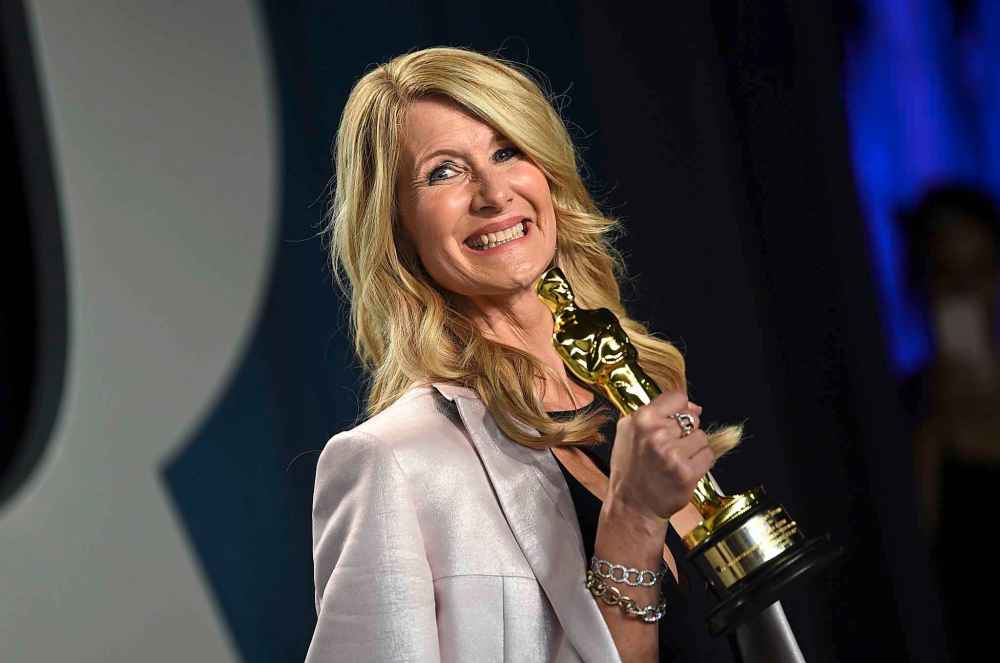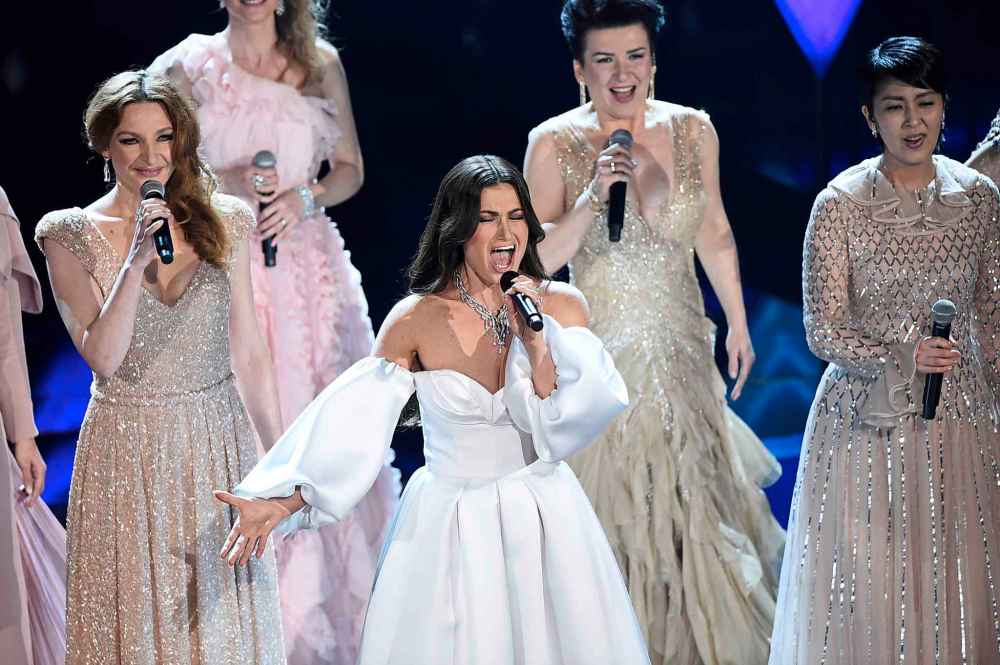No guilt in enjoying the Oscars Ceremony delivered relevant moments amid self-congratulation
Read this article for free:
or
Already have an account? Log in here »
To continue reading, please subscribe:
Monthly Digital Subscription
$0 for the first 4 weeks*
- Enjoy unlimited reading on winnipegfreepress.com
- Read the E-Edition, our digital replica newspaper
- Access News Break, our award-winning app
- Play interactive puzzles
*No charge for 4 weeks then price increases to the regular rate of $19.00 plus GST every four weeks. Offer available to new and qualified returning subscribers only. Cancel any time.
Monthly Digital Subscription
$4.75/week*
- Enjoy unlimited reading on winnipegfreepress.com
- Read the E-Edition, our digital replica newspaper
- Access News Break, our award-winning app
- Play interactive puzzles
*Billed as $19 plus GST every four weeks. Cancel any time.
To continue reading, please subscribe:
Add Free Press access to your Brandon Sun subscription for only an additional
$1 for the first 4 weeks*
*Your next subscription payment will increase by $1.00 and you will be charged $16.99 plus GST for four weeks. After four weeks, your payment will increase to $23.99 plus GST every four weeks.
Read unlimited articles for free today:
or
Already have an account? Log in here »
Hey there, time traveller!
This article was published 10/02/2020 (2128 days ago), so information in it may no longer be current.
It’s easy to dunk on the Oscars.
It’s an ostentatious, frothy affair — all cake frosting and champagne fizz — which lasts, approximately, your whole life. Rich people wearing clothes that cost the equivalent of a small country’s GDP, giving each other gold statues. Sometimes, there will be a “controversial” host, or a surprise win, or a funny speech (our queen, Olivia Colman) but usually it’s just a lot of shiny, pretty tedium.
And you know what? I love it.
I love the gowns and, more importantly, judging said gowns. I love a misty In Memoriam. I love a tight-and-bright acceptance speech that hits the triumvirate — funny, heartfelt, tearful — and I love a proud-parent moment. Diane Ladd just sobbing about her daughter Laura Dern’s first Oscar win? Come on.

Dern’s win was one of many feel-good moments at the 92nd Academy Awards ceremony on Sunday night. Hollywood’s biggest night is often described as “boring” and “irrelevant,” but this year’s show was the most memorable — and most relevant — Oscars in a long time, Eminem performing an 18-year-old song notwithstanding. (Whatever, it was good.)
Obviously, the biggest moment came when Parasite made history as the first non-English-language film to take home the award for Best Picture. Director Bong Joon-ho was already having a very good night; he had already won Oscars for Best International Film, Best Original Screenplay and, notably, Best Director — the second Asian to win that award after Ang Lee won it for Brokeback Mountain in 2005 and again for Life of Pi in 2012. There’s an adorable animated GIF circulating of Bong looking down at his statue with an incredulous grin spreading across his face.
bong joon ho staring at an oscar in awe pic.twitter.com/s2SjwHZUUW
— Kathryn VanArendonk (@kvanaren) February 10, 2020
The Best Picture win, however, is a big deal, signalling a shift in what kinds of movies get to become buzzed-about blockbusters. As Bong himself said at this year’s Golden Globes, “Once you overcome the one-inch-tall barrier of subtitles, you will be introduced to so many more amazing films.” Subtitles proved not to be a barrier for Parasite, which, by the way, earned an eight-minute standing ovation at Cannes Film Festival, where it also snagged the Palme D’Or.
Subtitled films are often treated as the domain of the erudite, art cinema set, not mainstream movie-going audiences. As well, foreign-language films often don’t have the same kind of promotional engines behind them. Parasite’s success is encouraging; hopefully it will normalize subtitles — which are miles better than dubbed dialogue — and widen the pool of what kinds of stories we see on North America’s silver screens.
Diversity looks like a South Korean film winning Best Picture at the Oscars, and a director delivering his acceptance speech via translator.
Diversity looks like Taika Waititi, the New Zealand filmmaker of Maori and Jewish heritage, who dedicated his Oscar for Best Adapted Screenplay to “all the Indigenous kids who want to do art and dance and write stories. We are the original storytellers and we can make it here, as well.”

Later, in an Oscars first, he delivered a land acknowledgement. “The academy would like to acknowledge that tonight we have gathered on the ancestral lands of the Tongva, the Tataviam and the Chumash. We acknowledge them as the first peoples of this land on which the motion pictures community lives and works.” It’s such a simple yet powerful statement, and there’s no reason it couldn’t be standard going forward.
Diversity looks like Hair Love, which tells the story of an African-American dad attempting to style his young daughter’s hair for the first time, winning Best Animated Short. As producer Karen Rupert Toliver said in her speech, representation matters, especially in cartoons “because that’s when we first see our movies and it’s how we shape our lives and think about how we see the world.”
Diversity looks like Idina Menzel, a.k.a. Elsa from Frozen, being joined by Elsas from Denmark, Germany, Japan, Latin America, Norway, Poland, Russia, Spain for a multilingual performance of Into the Unknown, the Oscar-nominated song from Frozen 2. It’s worth noting, too, that for the sequel to its blockbuster animated hit, Disney consulted with Scandinavia’s Indigenous Sámi people for the fictional Northuldra tribe, instead of just appropriating their culture as it did the first time around. Frozen 2 was also dubbed in the North Sámi language, and was released at the same time as the English version.

Diversity looks like Icelandic composer Hildur Guðnadóttir winning for Best Original Score for her work on Joker. It looks like the showstopping opening number performed by queer black artists Janelle Monae and Billy Porter.
The Academy has long had a diversity problem, as highlighted by Twitter campaigns such as #OscarsSoWhite. And, indeed, the Best Actor/Actress categories looked pretty white — save for Cynthia Erivo, star of the Harriet Tubman biopic Harriet — and the director category looked pretty male. On Sunday night, we saw all the ways in which diversity made the show better. Homogeneity makes for boring award shows, but more crucially, it makes for boring art.
Let’s hope next year’s slate of nominees is more reflective of the art that’s being made, and that Parasite’s win wasn’t a one-off.
jen.zoratti@freepress.mb.ca
Twitter: @JenZoratti

Jen Zoratti is a Winnipeg Free Press columnist and author of the newsletter, NEXT, a weekly look towards a post-pandemic future.
Our newsroom depends on a growing audience of readers to power our journalism. If you are not a paid reader, please consider becoming a subscriber.
Our newsroom depends on its audience of readers to power our journalism. Thank you for your support.





























